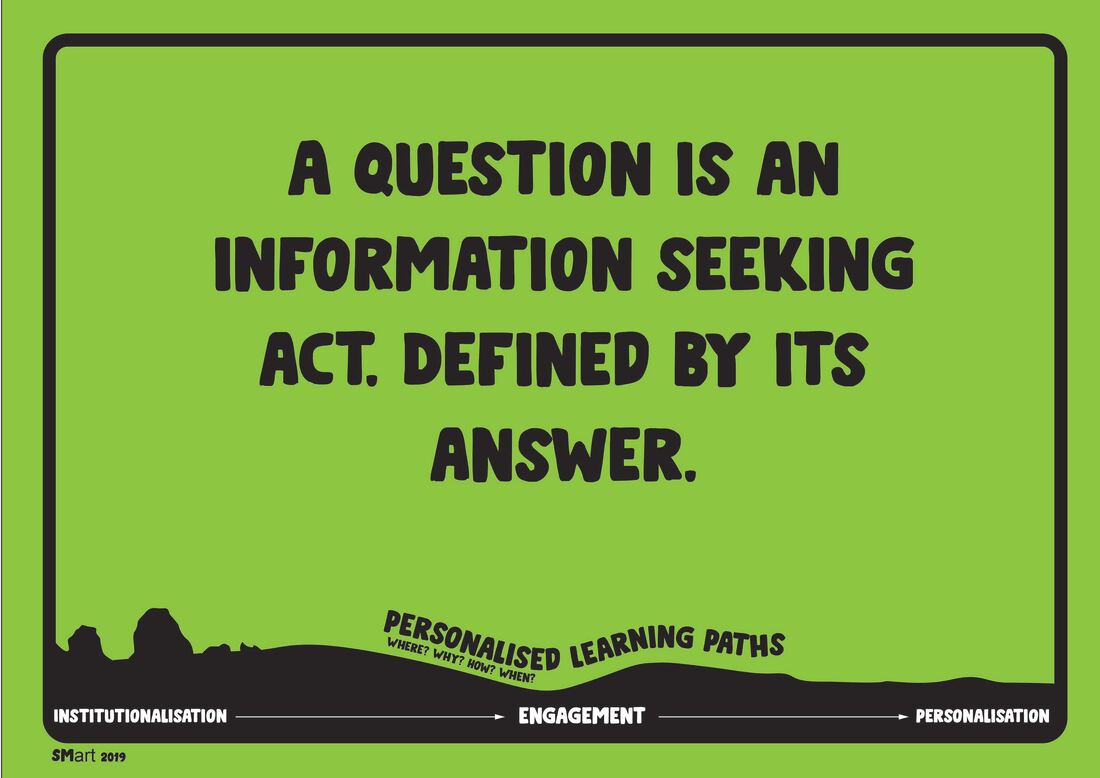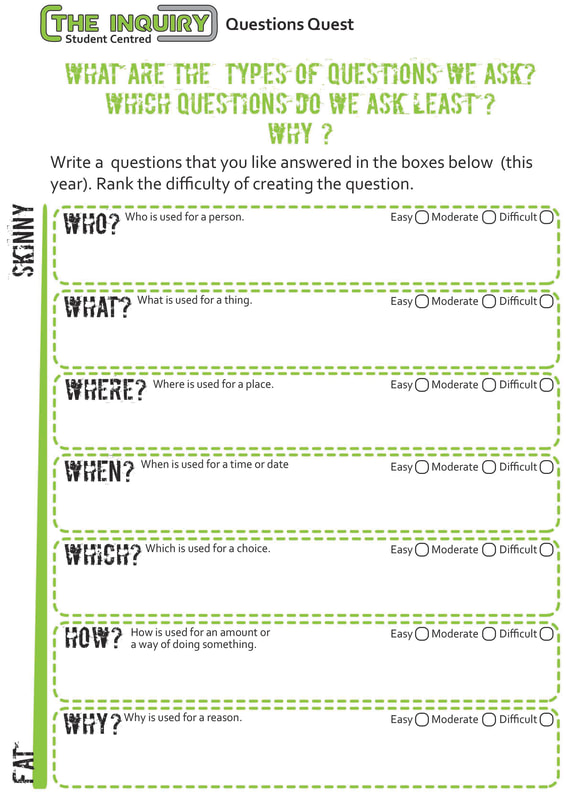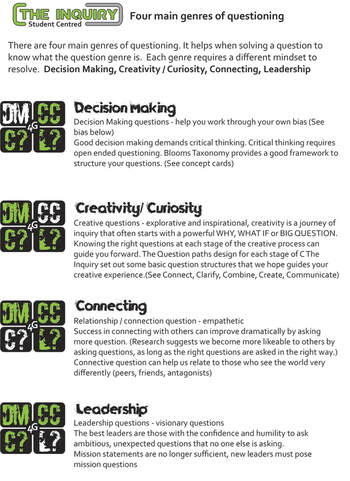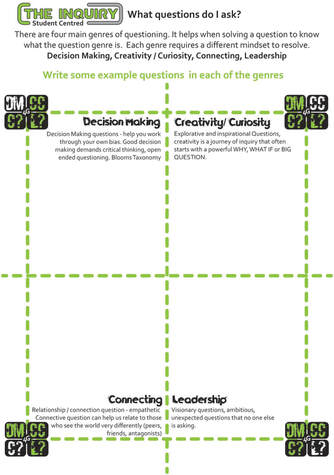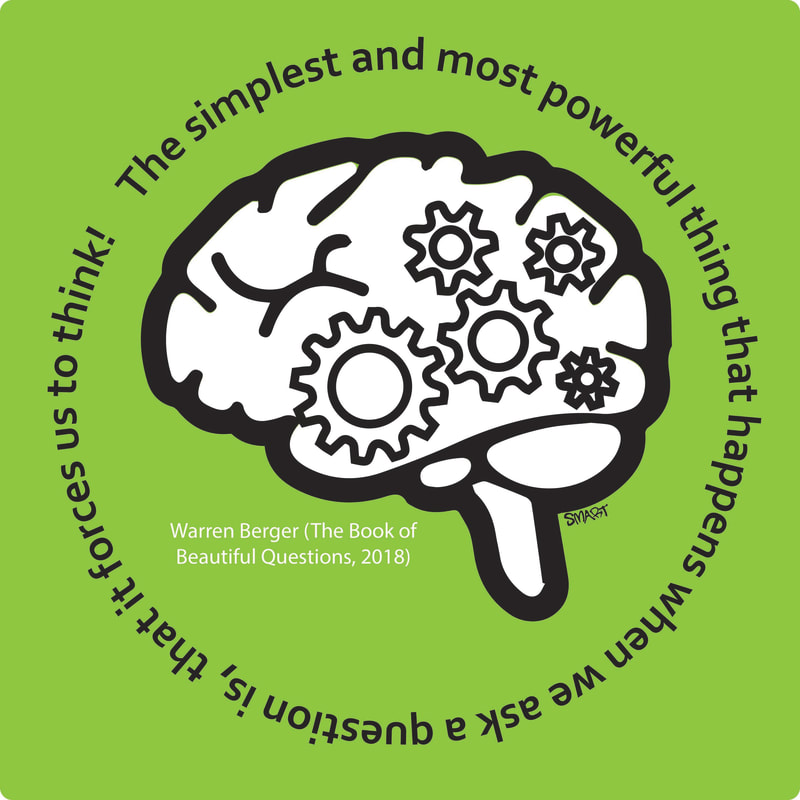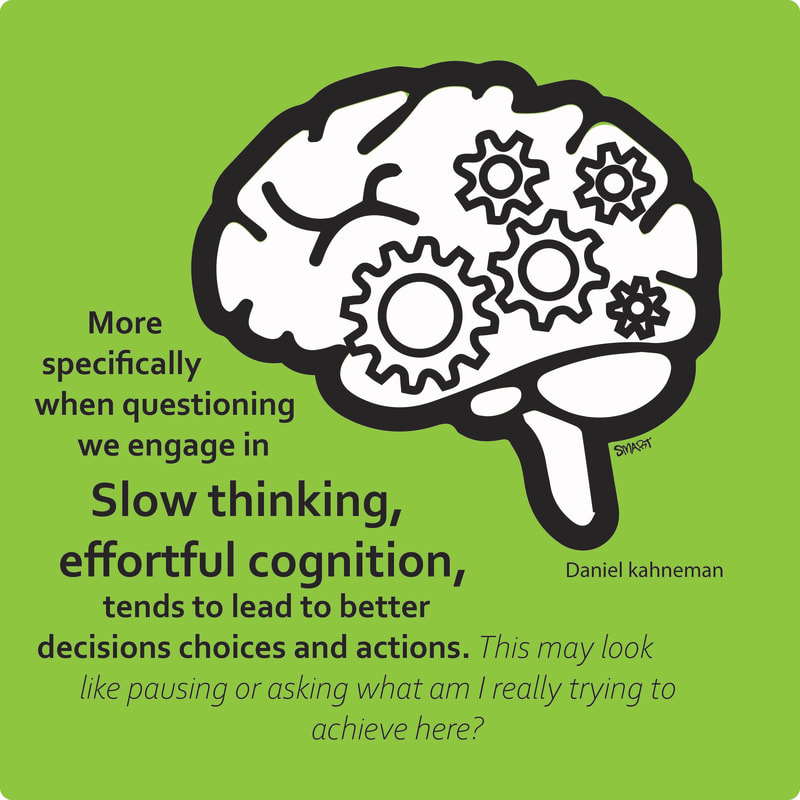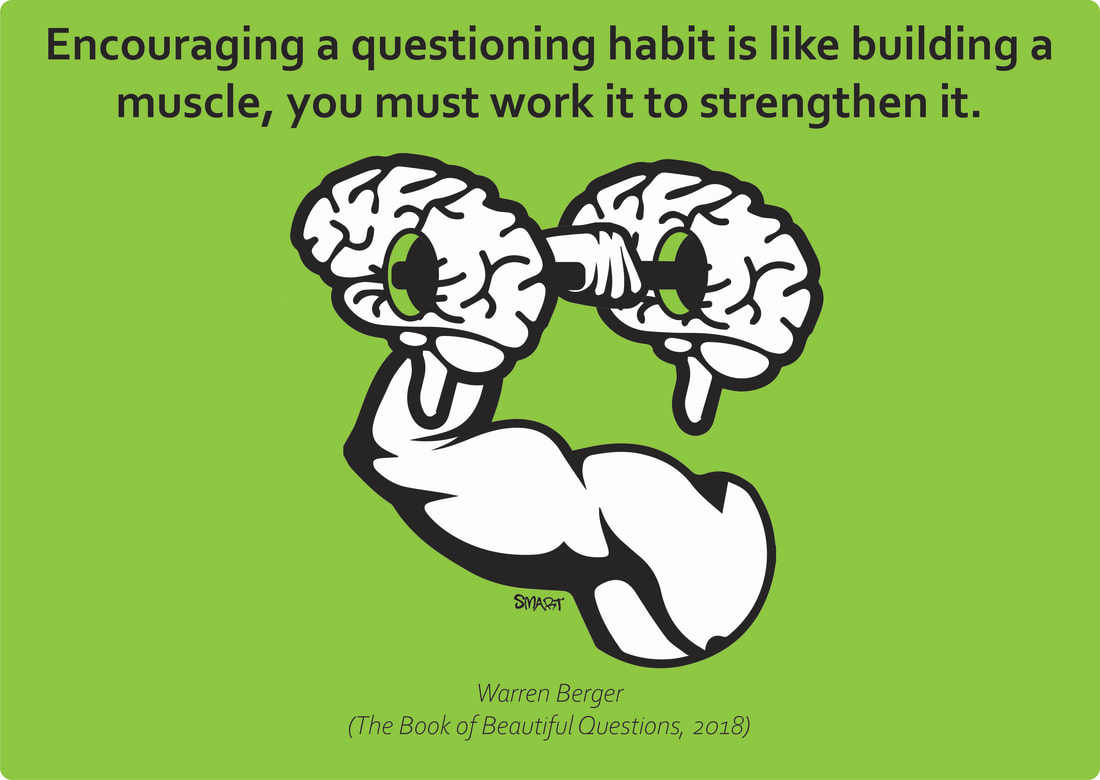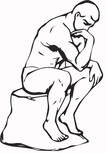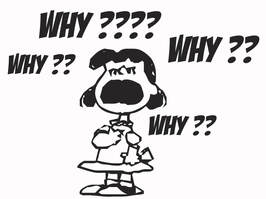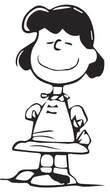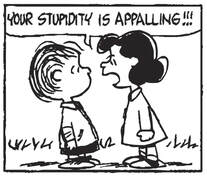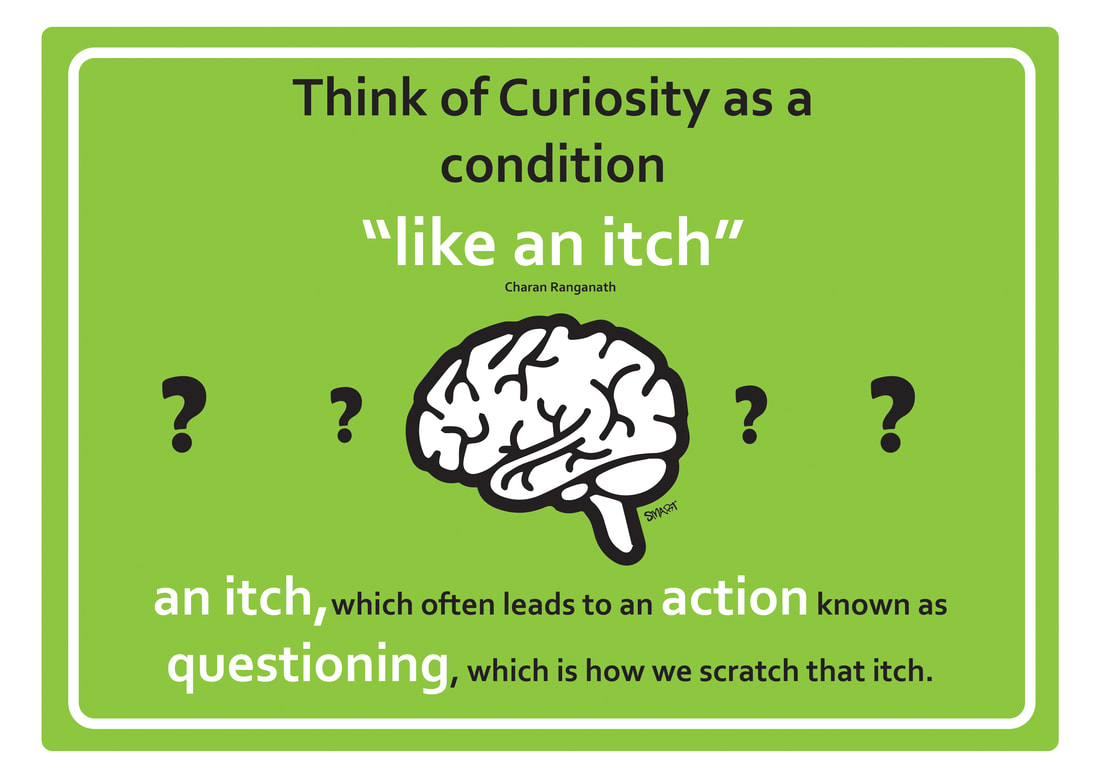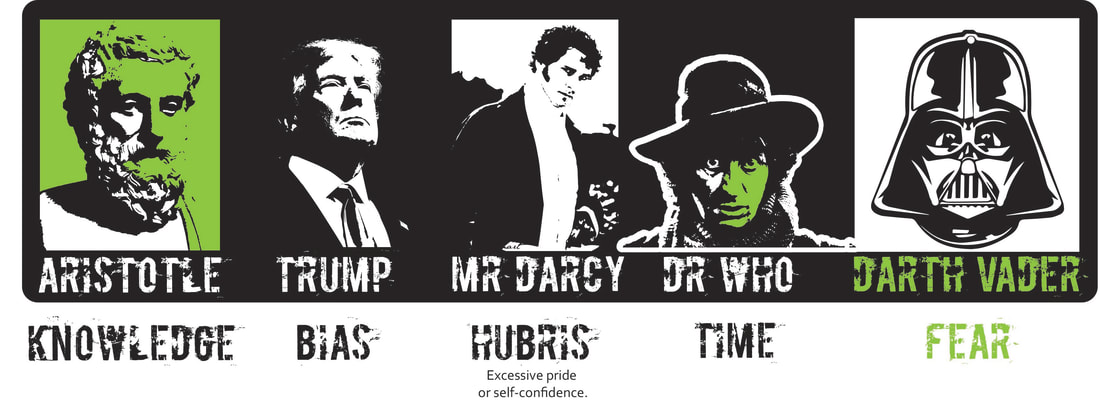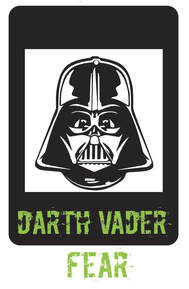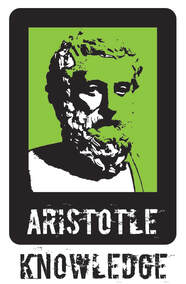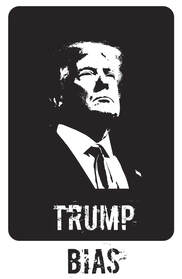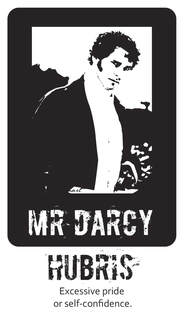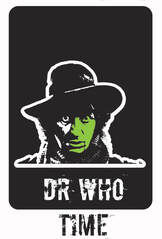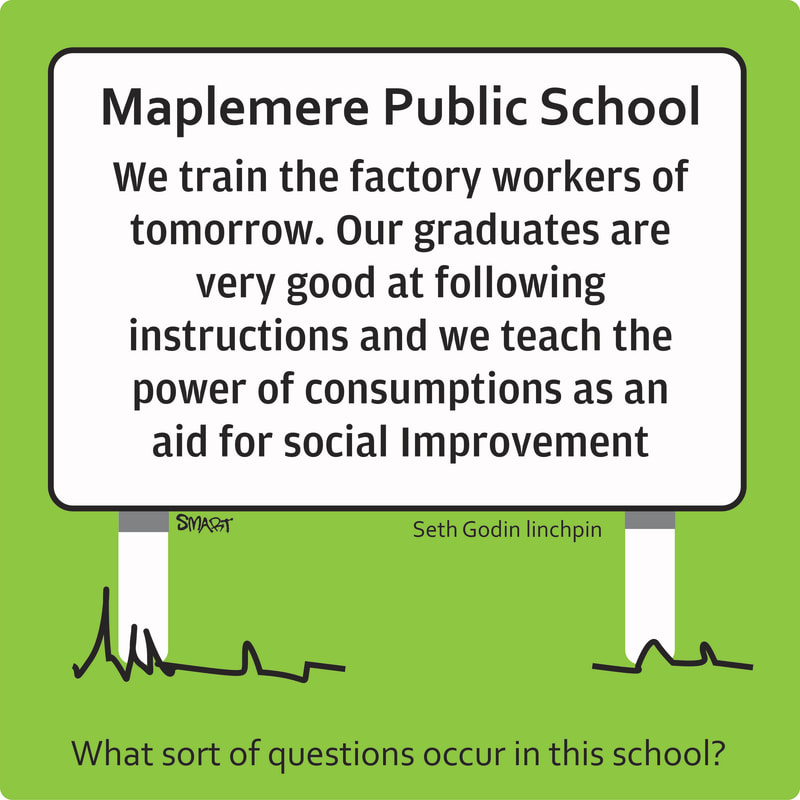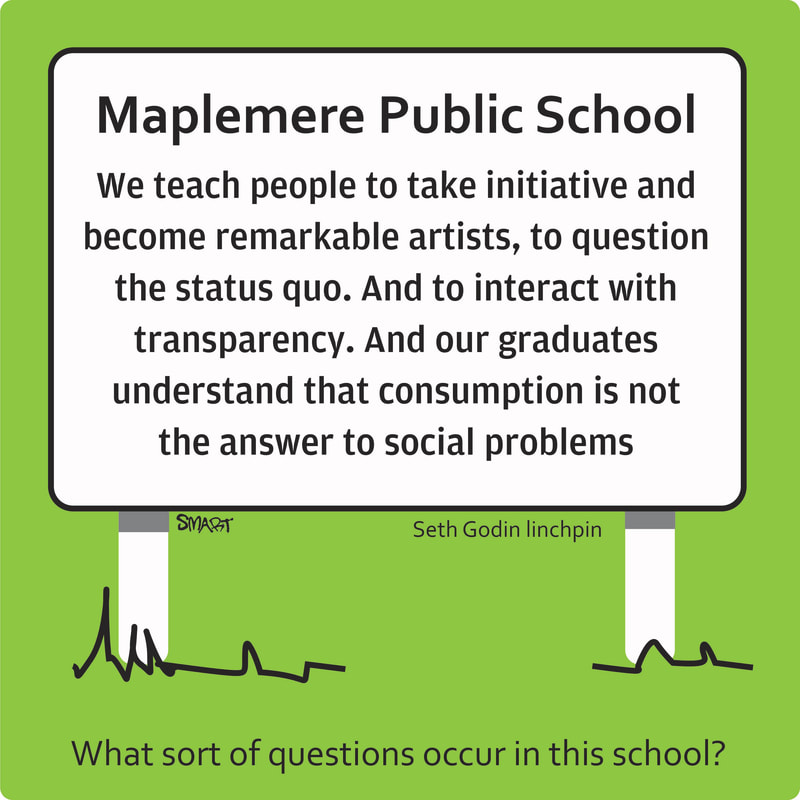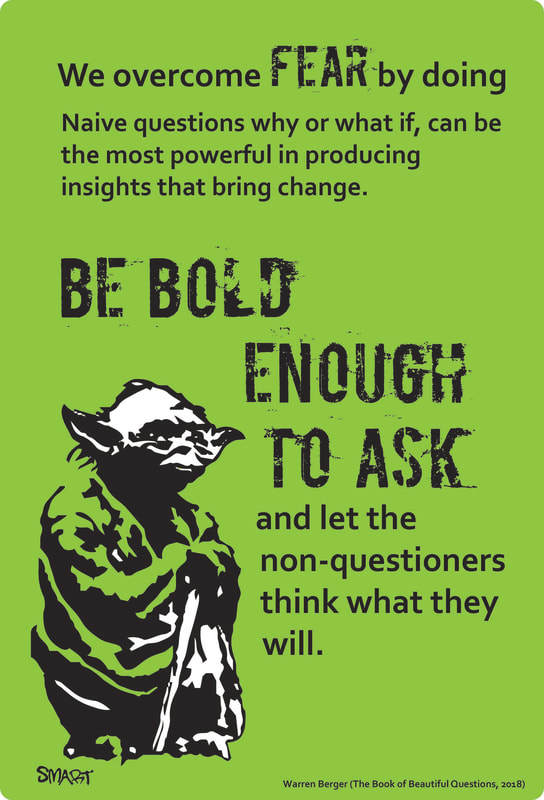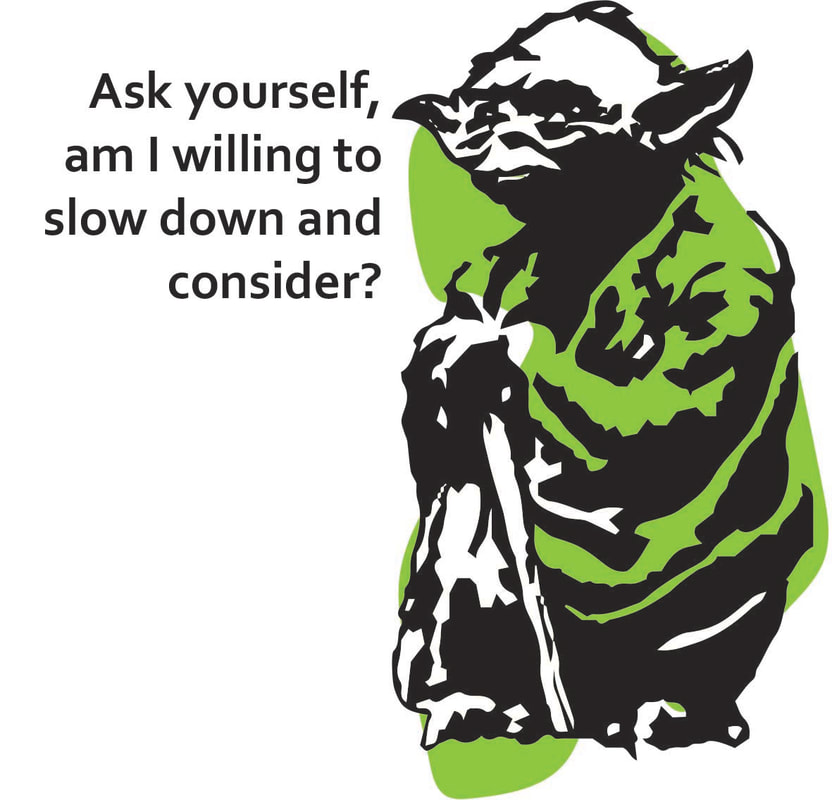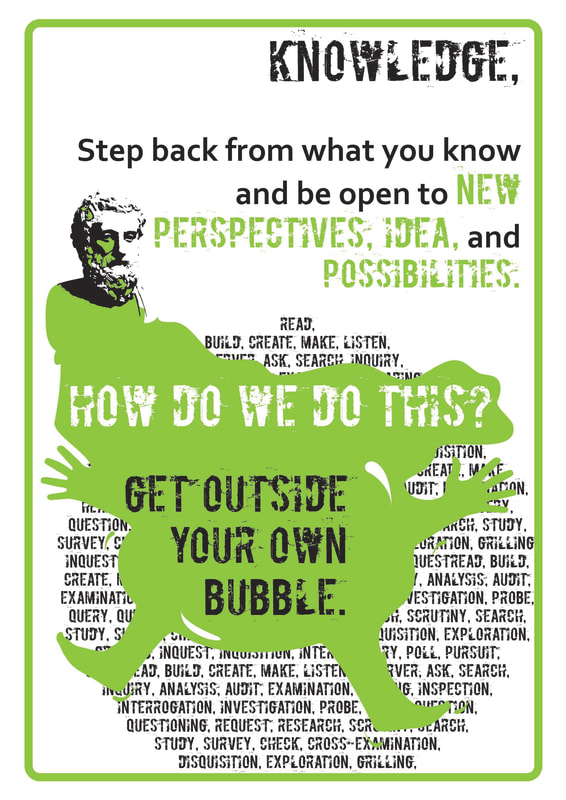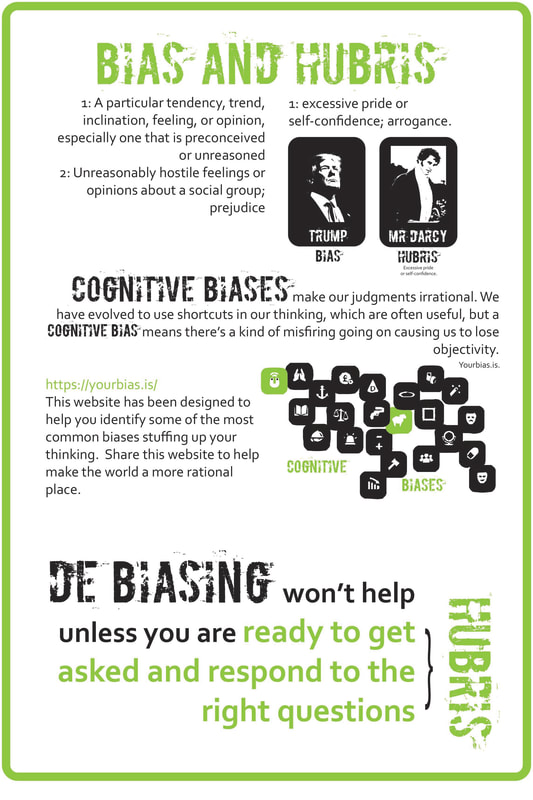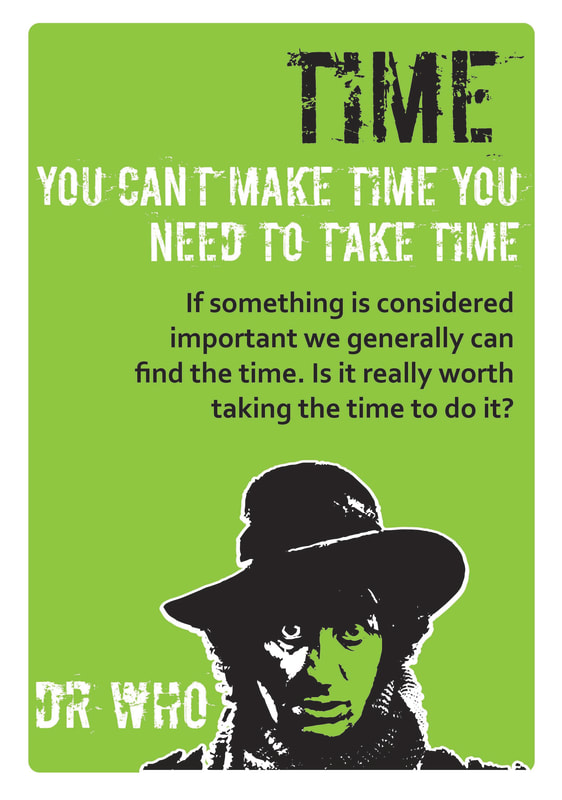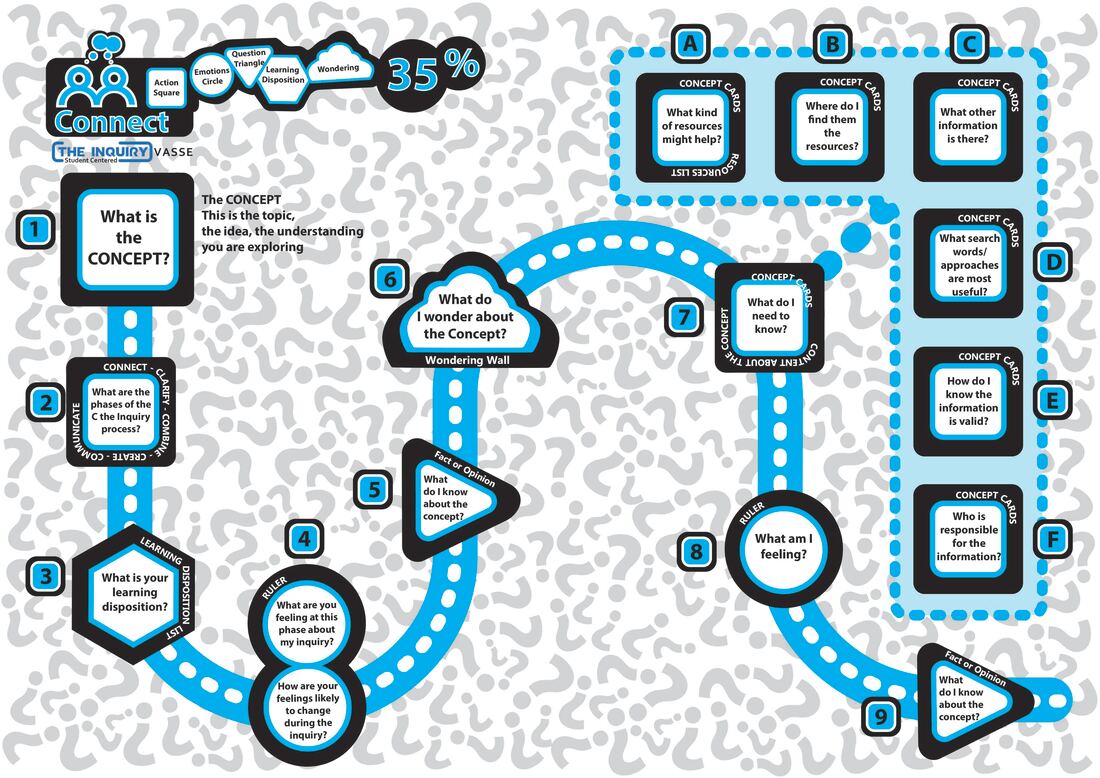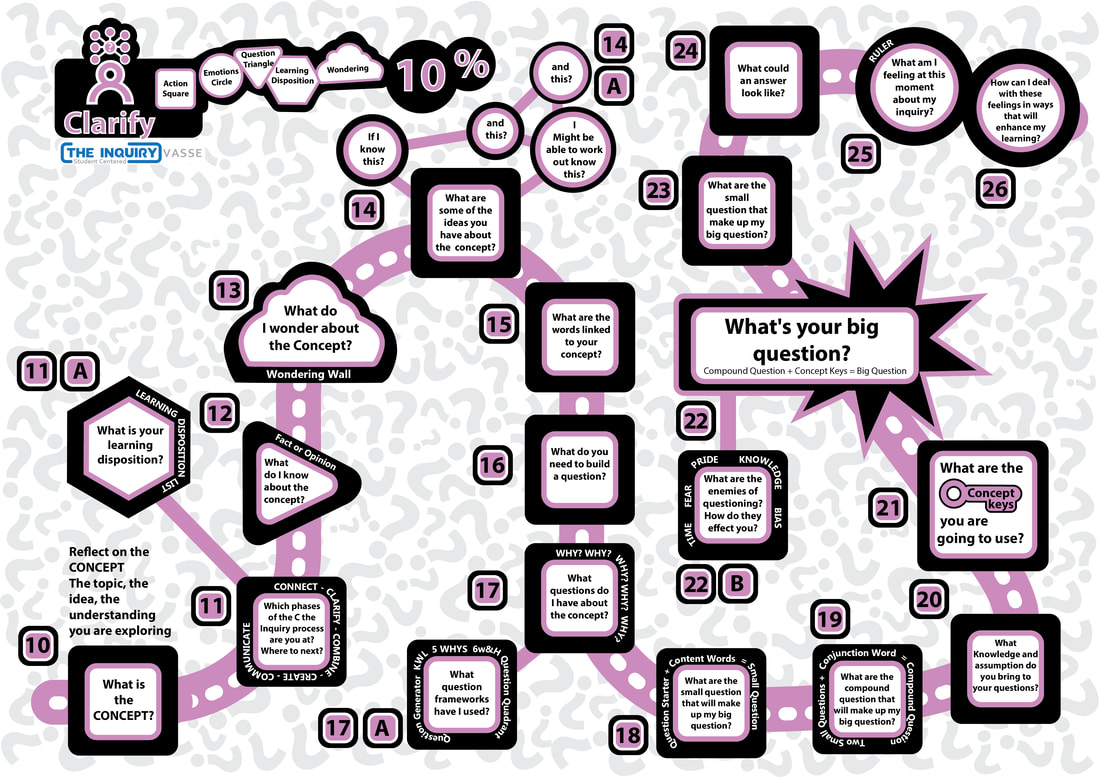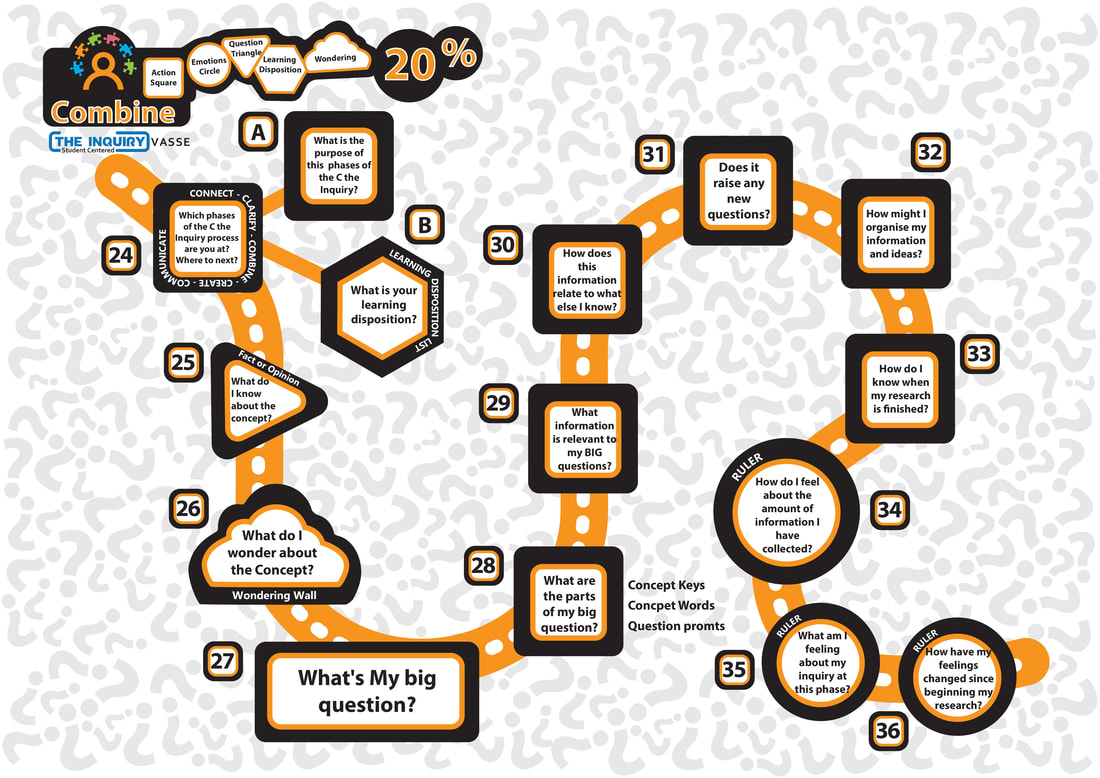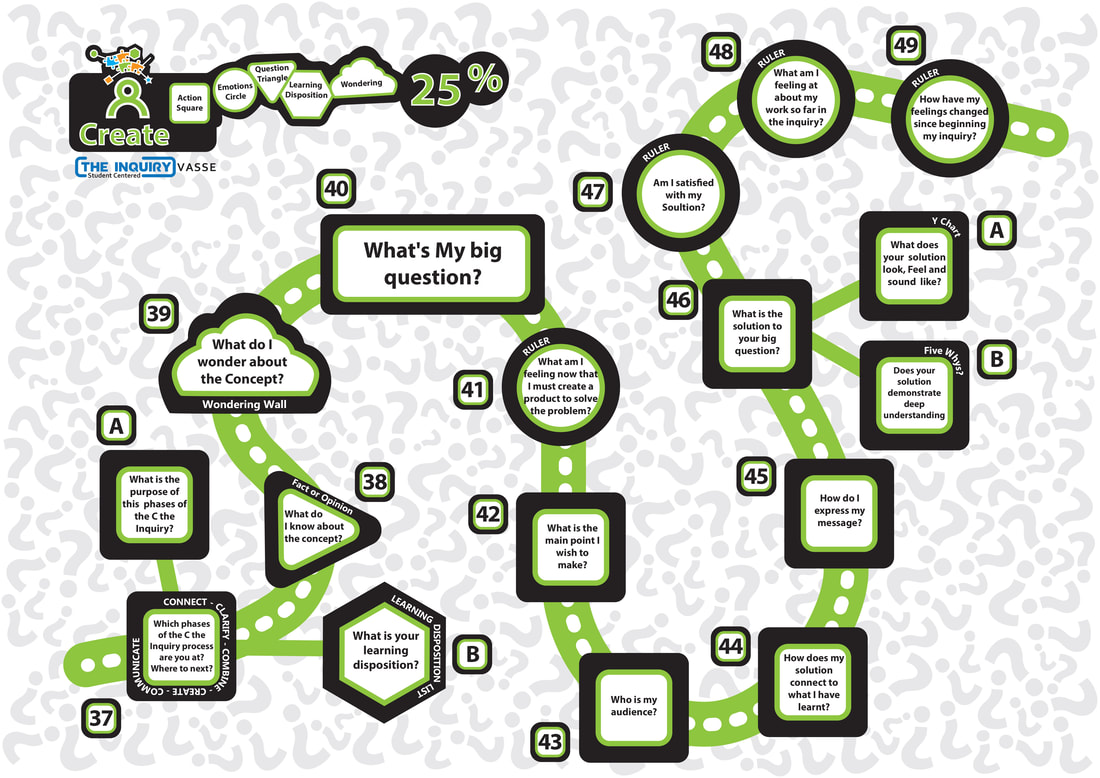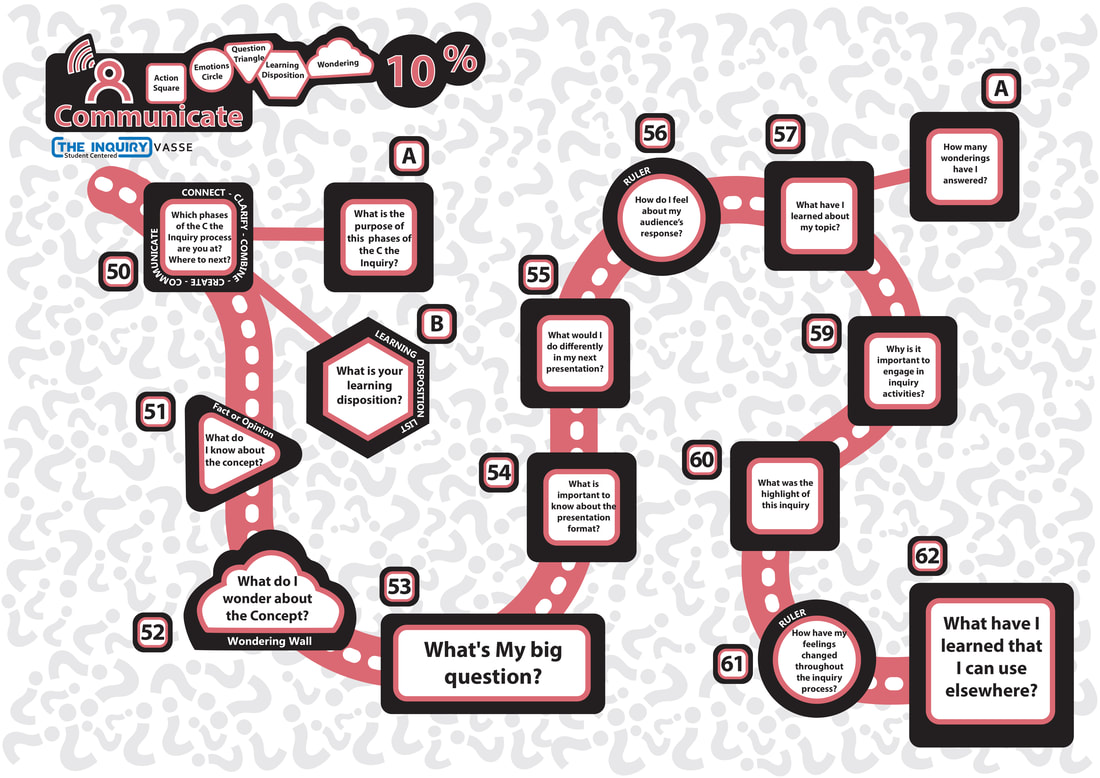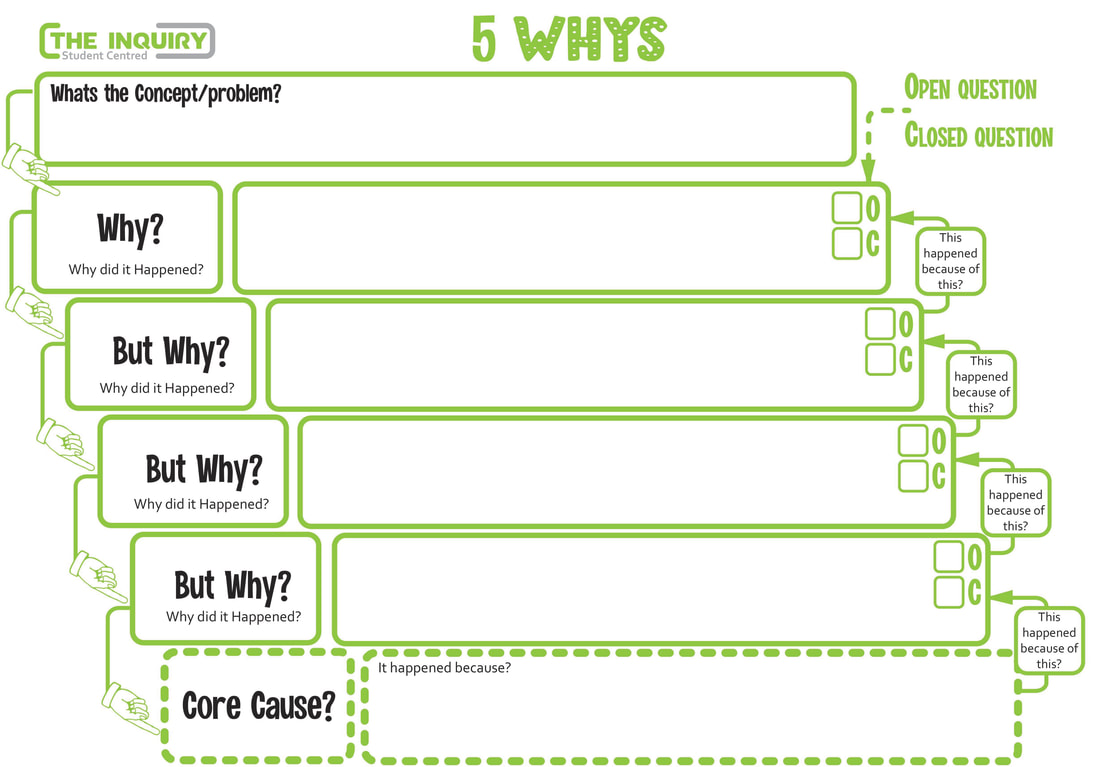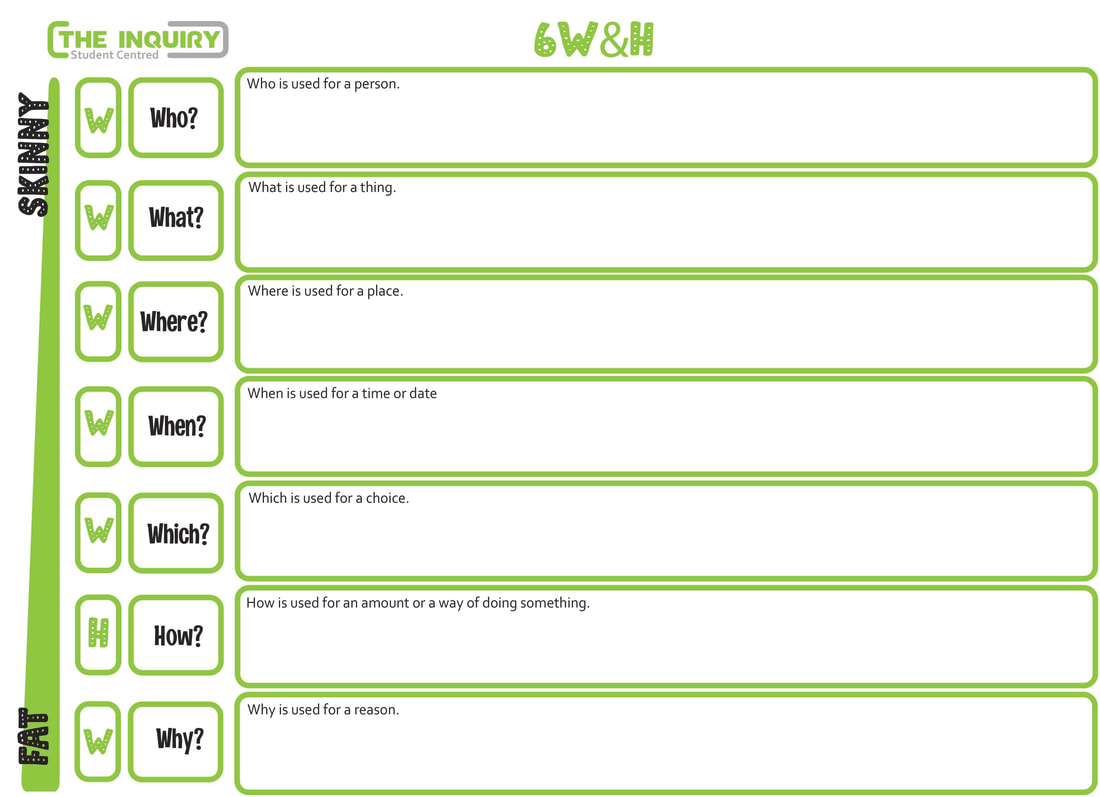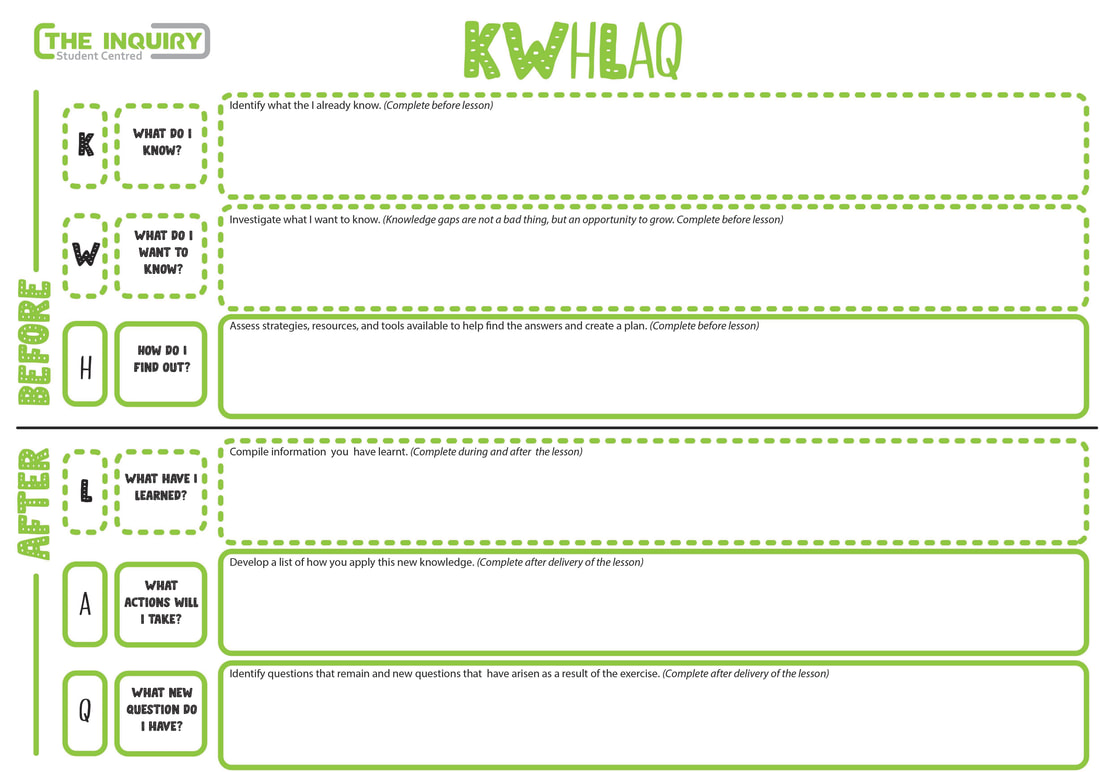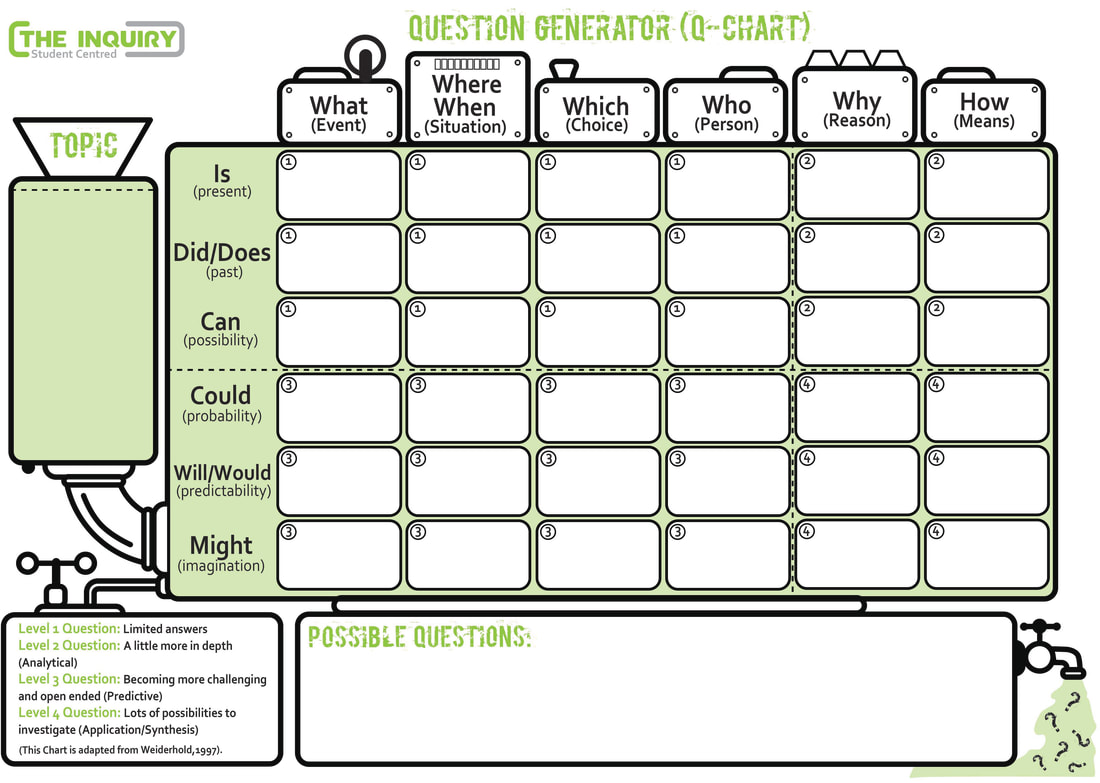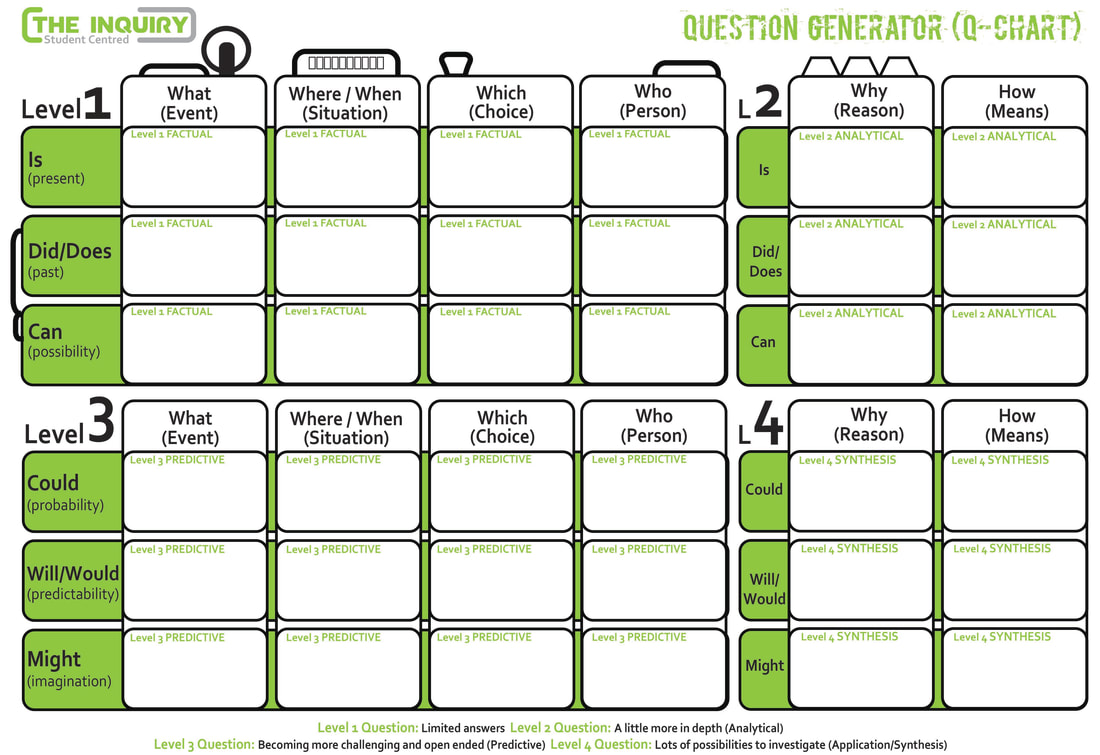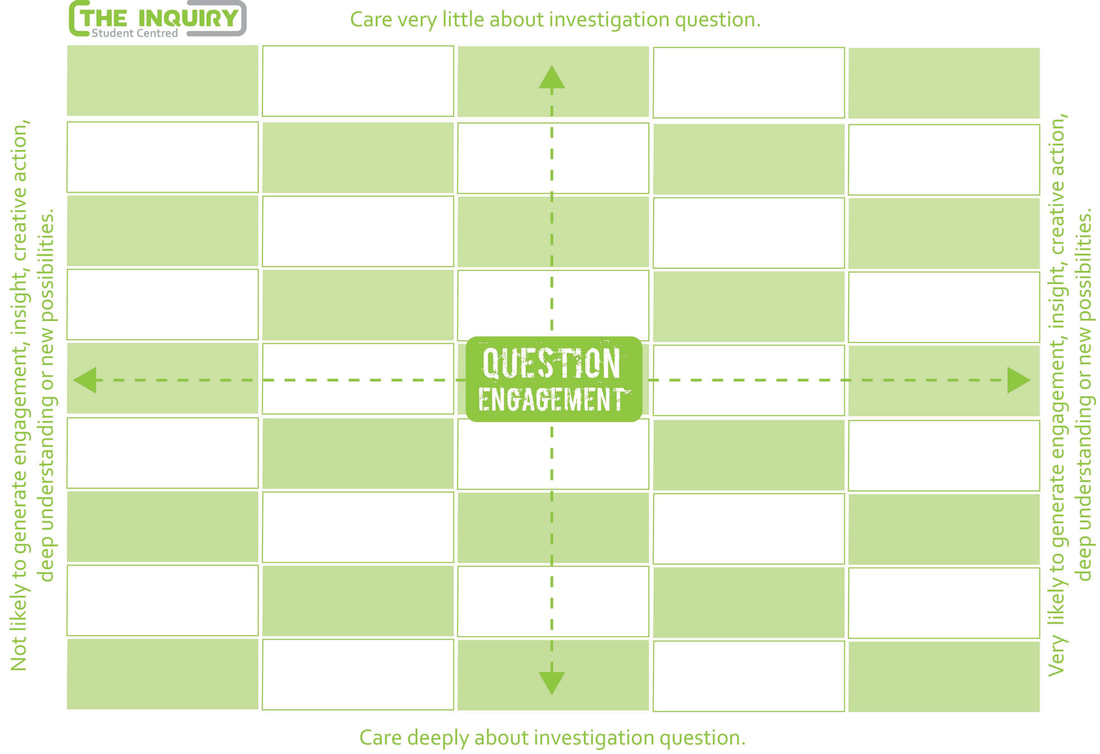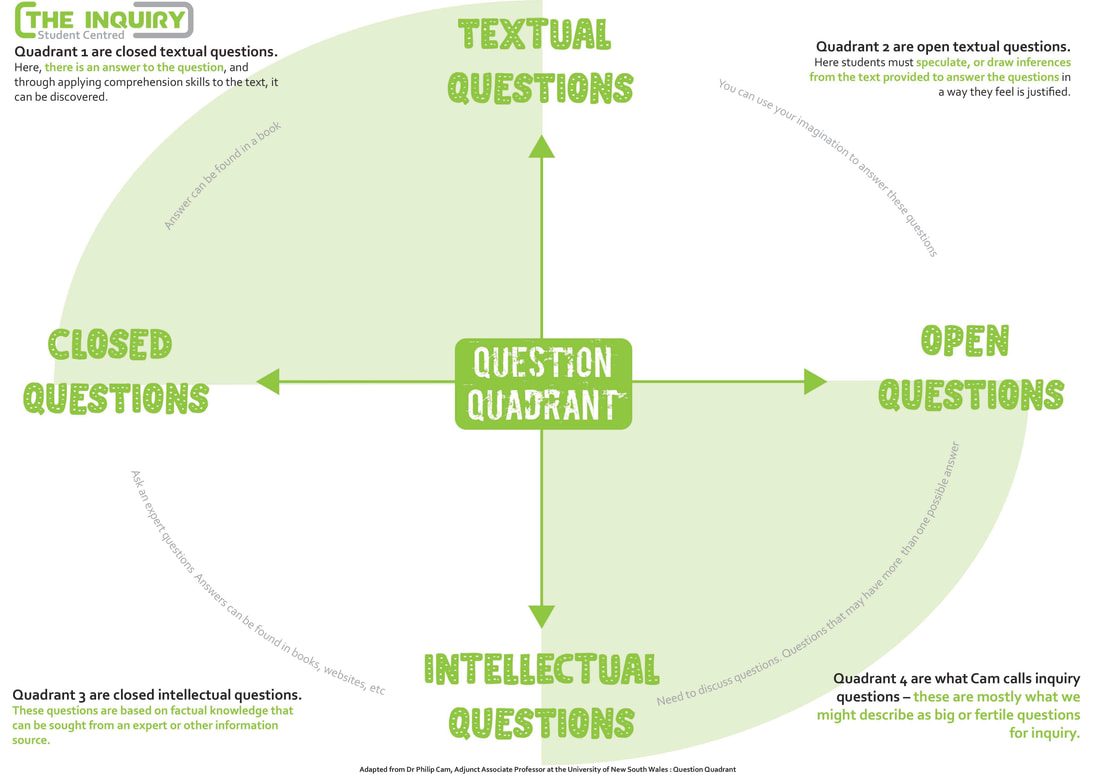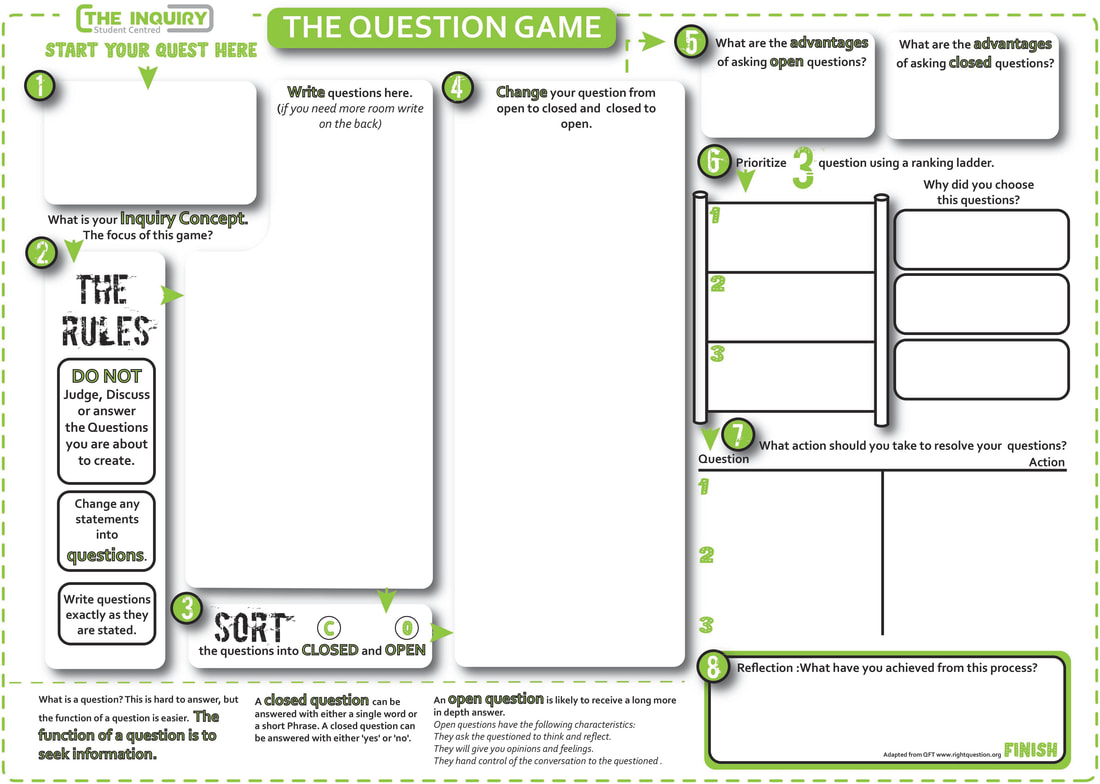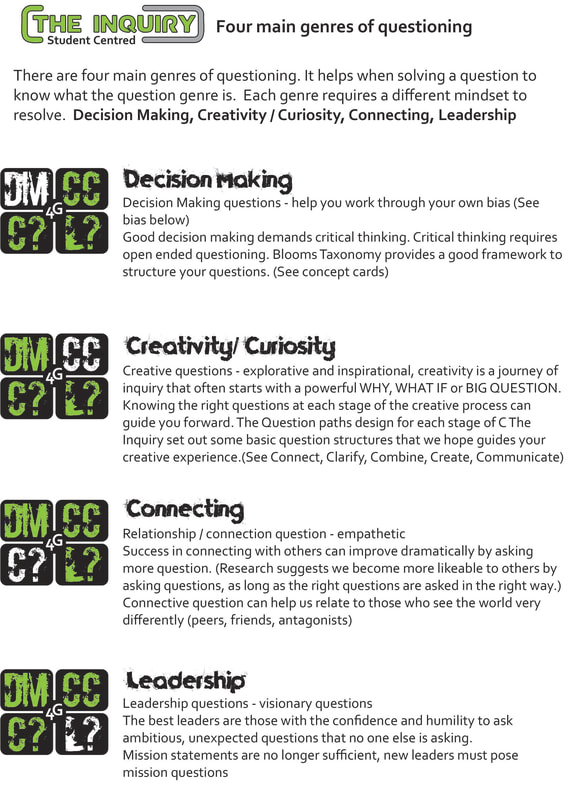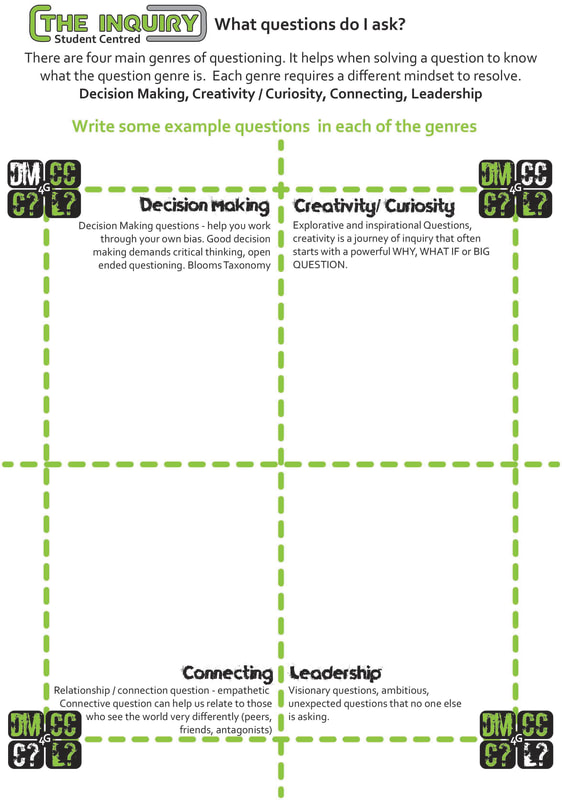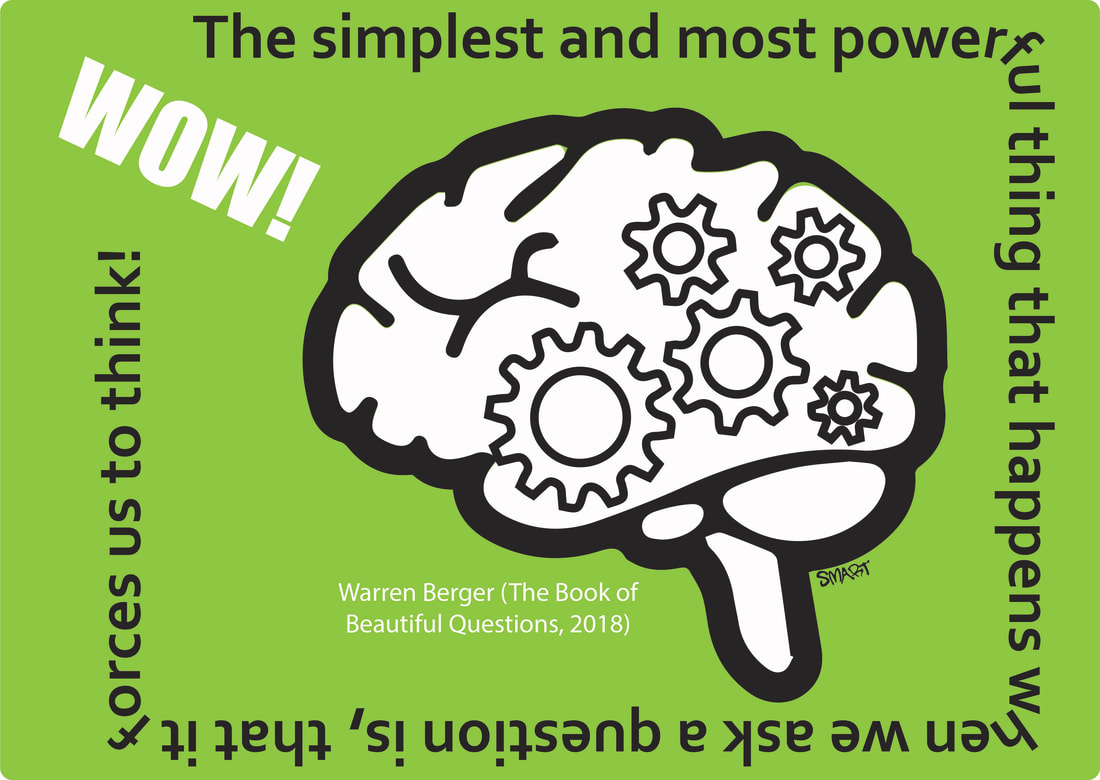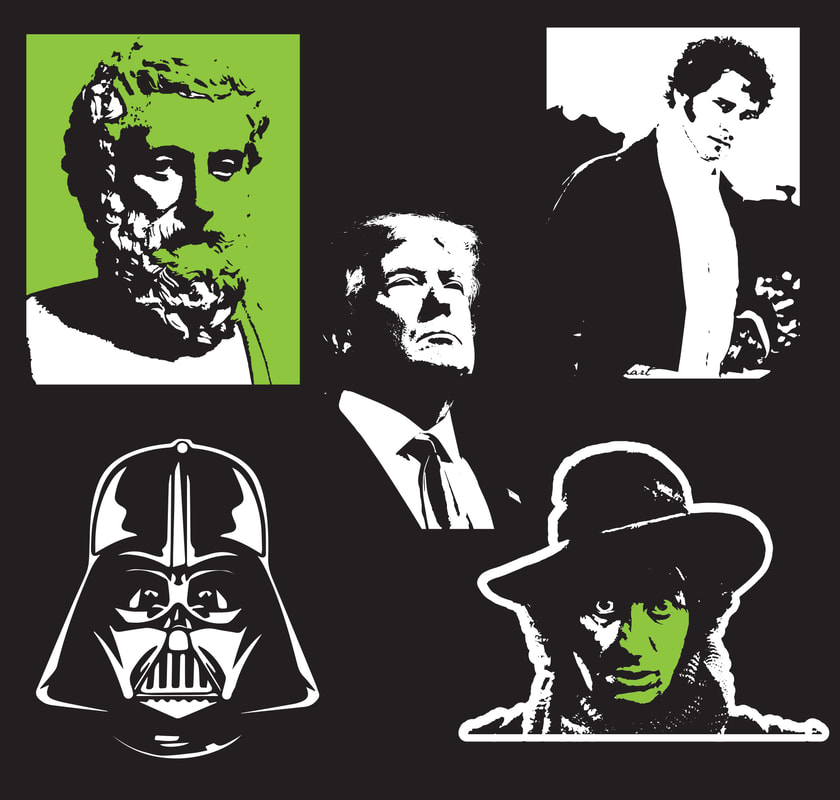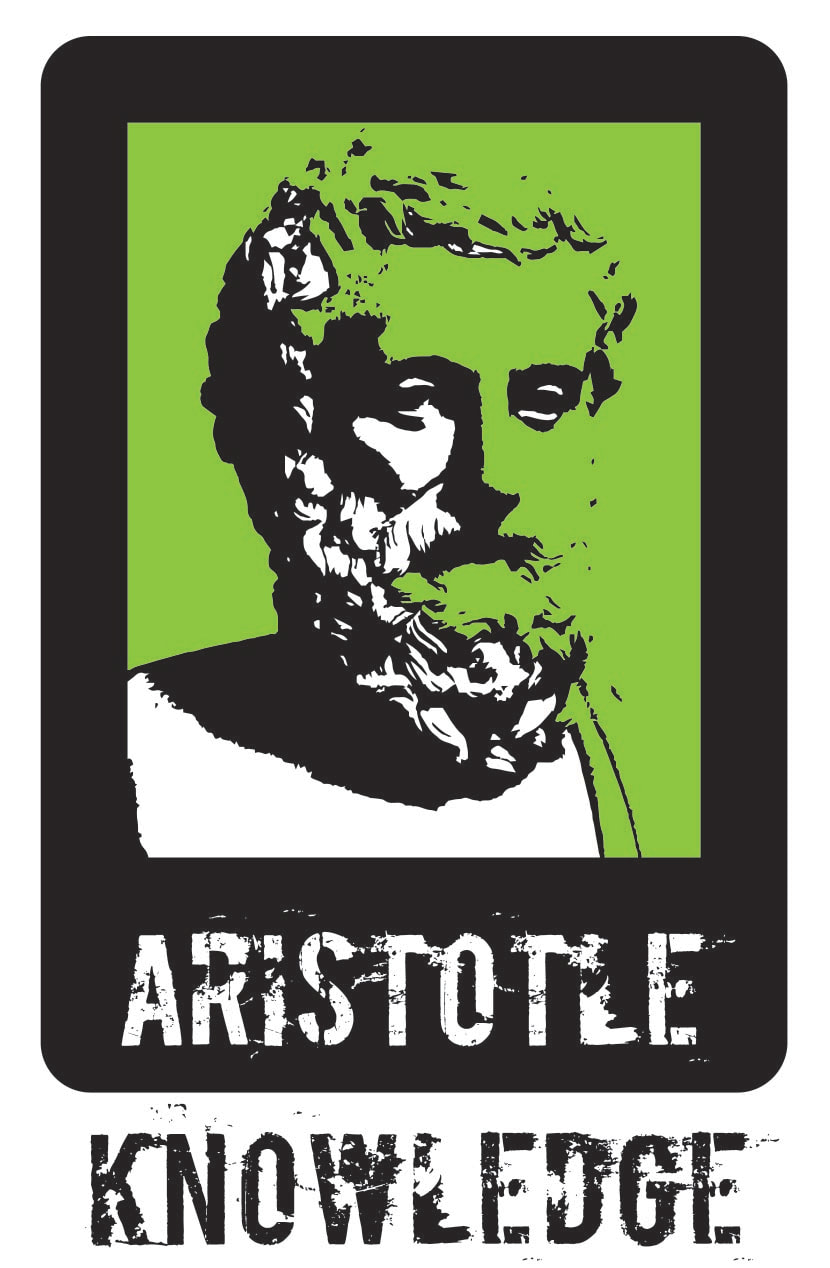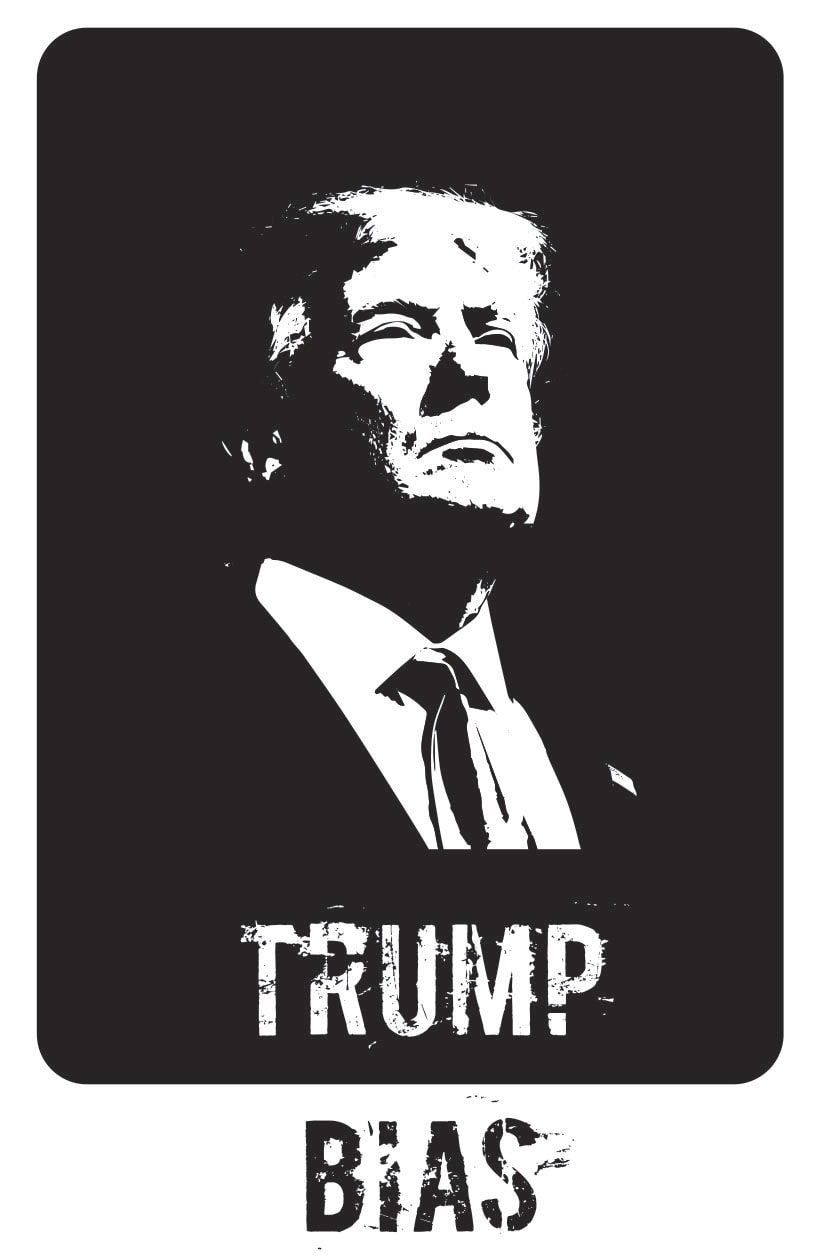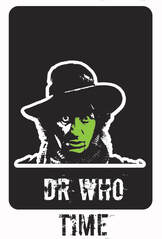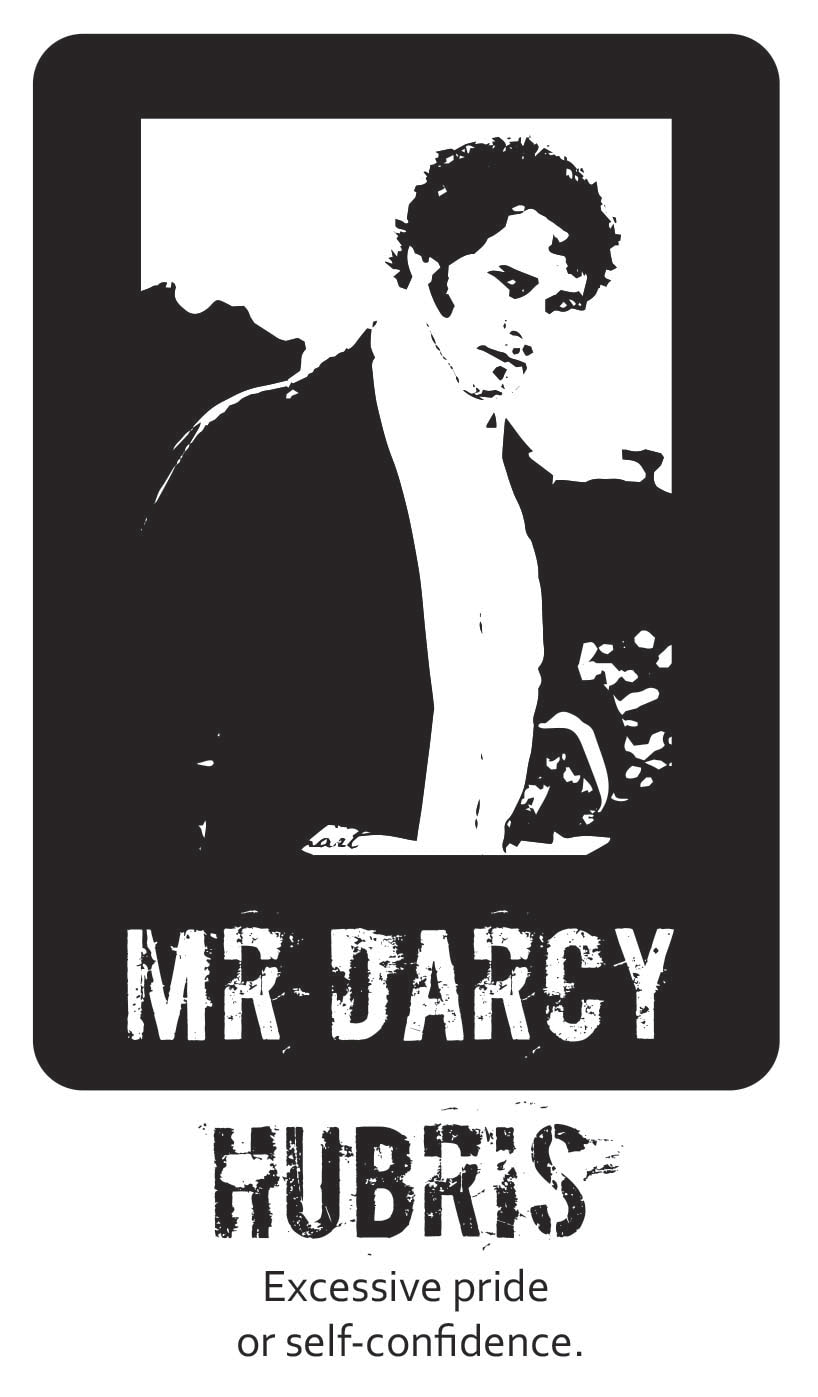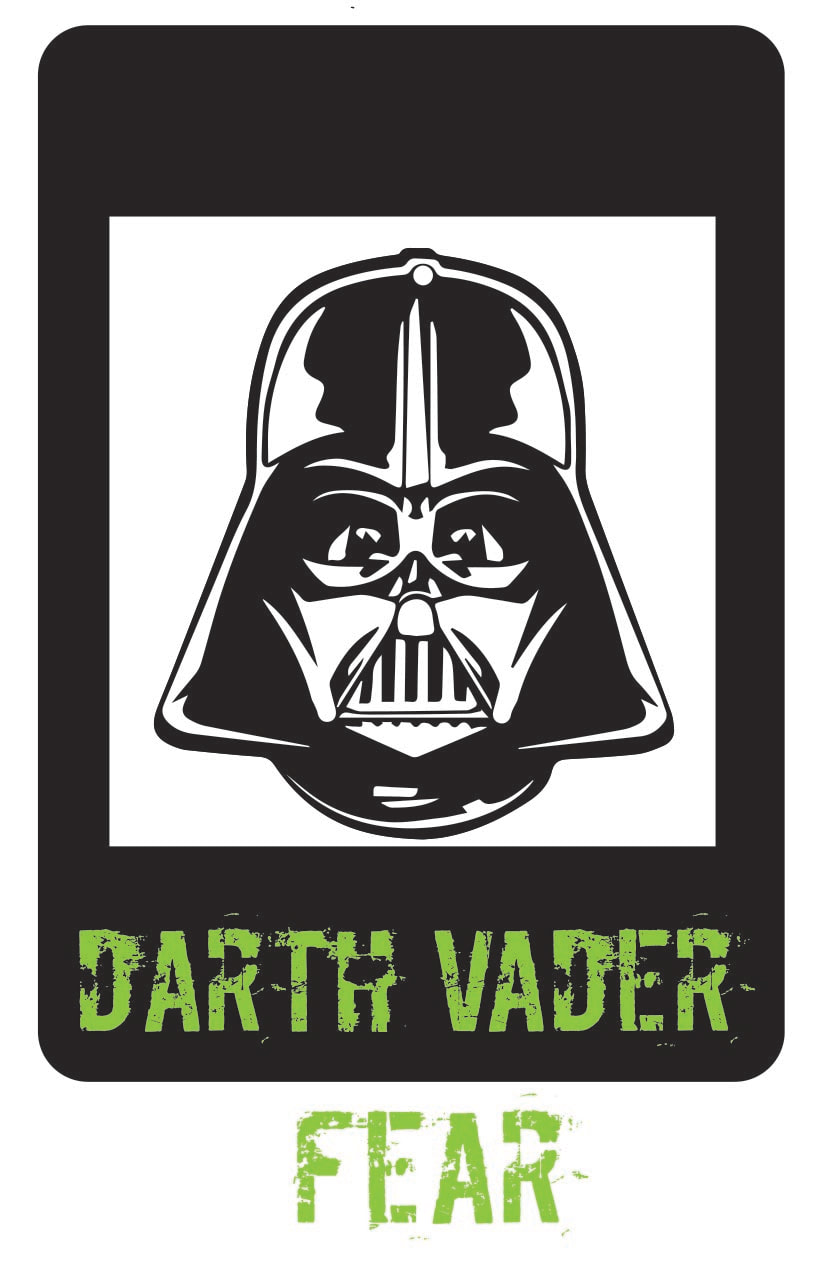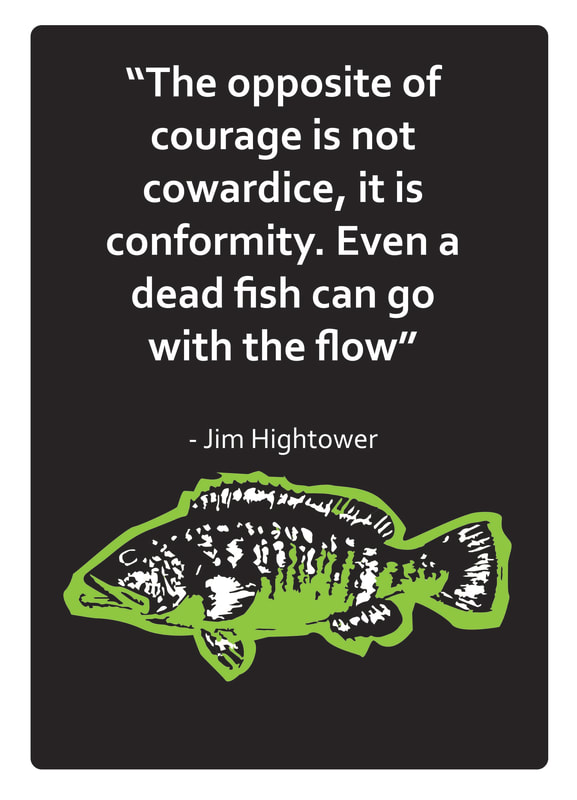A search for the right question not the right answer
Questions
What questions do you ask?
Which directions do you look for answers?
Which directions do you look for answers?
When exploring questioning the learner needs to know what type of questions they are being asked and how to improve their capacity to answers them.
What are the types of questions we ask? Which questions do we ask least? Why?
Task: Write a questions that you like answered in the boxes below (this year). Rank the difficulty of creating the question.
Task: Write a questions that you like answered in the boxes below (this year). Rank the difficulty of creating the question.
| question_quest_worksheet.pdf | |
| File Size: | 572 kb |
| File Type: | |
There are four main genres of questioning. It helps when solving a question to know what the question genre is. Each genre requires a different mindset to resolve. Decision Making, Creativity / Curiosity, Connecting, Leadership
|
Decision Making
Decision Making questions - help you work through your own bias (See bias below) Good decision making demands critical thinking. Critical thinking requires open ended questioning. Blooms Taxonomy provides a good framework to structure your questions. (See concept cards) |
|
Creativity/ Curiosity
Creative questions - explorative and inspirational, creativity is a journey of inquiry that often starts with a powerful WHY, WHAT IF or BIG QUESTION. Knowing the right questions at each stage of the creative process can guide you forward. The Question paths design for each stage of C The Inquiry set out some basic question structures that we hope guides your creative experience.(See Connect, Clarify, Combine, Create, Communicate) |
|
Connecting
Relationship / connection question - empathetic Success in connecting with others can improve dramatically by asking more question. (Research suggests we become more likeable to others by asking questions, as long as the right questions are asked in the right way.) Connective question can help us relate to those who see the world very differently (peers, friends, antagonists) In general relationships can benefit from questioning,
but we are more comfortable dispensing opinions and advice. Generally we do more telling then asking |
TASK: Thinking back to the who, what and why questions you pondered earlier what genres do they fit.
|
| ||||||||||||
| |||||||
| strong_questionposter.pdf | |
| File Size: | 514 kb |
| File Type: | |
Who are the master questioners?
|
Why is a four year old girls the ultimate master questioners?
At her peak, the 4 year old girl has know reluctance to ask all manner of question, she is not weighed down by: 1: Accumulated knowledge,
2: Biases, 3: Assumptions about how the world works and why the things are the way they are. Her mind is open and expansive.. an ideal condition for wondering, inquiring, and growing. Around age 5,6 the question subsided for more than 100 questions a day to sometimes none. |
The Five Enemies of Questioning
Warren Berger (The Book of Beautiful Questions, 2018)
|
Task: What are the five enemies of questioning. Each of these figures represents an enemy can you what they are?
|
| ||||||
Stop do the task above before going any further.
Warren Berger (The Book of Beautiful Questions, 2018)
|
Fear - we start as fearless questioners - but eventually get the message from
teachers, peers, society that question carries risks. Unfortunately some consider coolness is being in the know already or acting that you don’t care. To ask a question demonstrates you don’t know and you do care. It’s a paralysing problem for young students and seems to get worse as they get older. Learners are concerned they will ask the wrong question, revealing what they don’t know or what they ought to know. |
Adults have a fear of not knowing (kids have the excuse of being young) but adults sometimes feel they have no excuse for knowing something important.
Fear of asking question can be particularly strong in the schools and workplaces people worry:
Fear of asking question can be particularly strong in the schools and workplaces people worry:
- Will the question seem like I don’t know my own job, I don't know what I am suppose to be doing,
- Will it annoy my classmates, colleagues, teacher and supervisor, or will it threaten them in some way, Question can be irritating and confrontational?
| five_enemies_blackwhite_fearcards.pdf | |
| File Size: | 2528 kb |
| File Type: | |
|
Knowledge
The more you know the less you feel you need to ask. Experts can rely too much on what they know. And fail to keep expanding and updating their knowledge. This is particularly perilous in times of rapid change. Another concern on relying on ones existing knowledge is that we don’t know as much as we think we do. |
| five_enemies_blackwhite_knowledgecards.pdf | |
| File Size: | 2543 kb |
| File Type: | |
|
Bias
Some bias can be hardwired in us, others are based on limited experience. If we are predisposed to think something we are less predisposed to considering questions that challenged that view. To help establish your bias with these bias analysis tools: Know your Bias 16 cognitive biases that can kill your decision making |
| five_enemies_blackwhite_biascards.pdf | |
| File Size: | 1475 kb |
| File Type: | |
|
Hubris
Hubris lead us to believe that our bias are correct or are not bias at all ( everyone else is biased). The relationship between humility and questioning is interesting - if you lack humility your likely to do less questioning. If I don’t know it already it can’t be that important, I don't have to sit here and listen to this because I’m a really. |
| five_enemies_blackwhite_hubriscards.pdf | |
| File Size: | 1220 kb |
| File Type: | |
|
Time
Time or the lack of it. Some people see things that are and ask, why? Some people dream of things that never were and ask, why not? Some people have to go to work and don’t have time for all that. George Carlin We are constantly under pressure to make quick decision and render snap judgements and to do, do, do without asking why or what we are doing. Little time in live has been allotted for Inquiry, contemplation, or critical thinking. |
| five_enemies_blackwhite_timecards.pdf | |
| File Size: | 1477 kb |
| File Type: | |
With the rush to do more it can be more efficient to slow down, as rushed decisions can send us down the wrong path. Always ask why we are doing things and why are we doing things that way Steve Jobs
We think we have time. But before we know it, we ask where all the time went. Wake up and realize we don't live forever on earth. love your life while youre here. Take a day off school or work every once and awhile so you can go explore. Breathe. Don't get so caught up in the things of this world, instead look to higher places. Buddha
Consideration point: The effect of the environment of questioning
| environmental_questions.pdf | |
| File Size: | 442 kb |
| File Type: | |
How might we foster a better questioning habit?
We must come to terms with the five forces that get in the way of questioning; Fear, Knowledge, Bias, Hubris and Time
Fear
| be_bold_and_ask.pdf | |
| File Size: | 478 kb |
| File Type: | |
|
Task: Ask yourself, what sort of questioner am I? Rate your responses to the following statements
Am I willing to be seen as naive? Am I comfortable raising questions with no immediate answers? Am I willing to move away from what I know? Am I open to admitting I might be wrong? Am I willing to slow down and consider? |
| ||||||
Knowledge
| knowledge.pdf | |
| File Size: | 742 kb |
| File Type: | |
Bias and Hubris
| bias_and_hubris.pdf | |
| File Size: | 1528 kb |
| File Type: | |
Time
| time.pdf | |
| File Size: | 1663 kb |
| File Type: | |
Questioning Pathways C The Inquiry
|
|
|
|
| ||||||||||||||||||||||||||||||
|
Pathways combined into one document.
|
|
| ||||||
Questioning Framework
These frameworks are designed to give the questioner tools to develop deeper questions.
|
|
|
|
| ||||||||||||||||||||||||||||||
|
|
| ||||||||||||||||||||
Resource Rubric
|
|
|
| |||||||||||||||||||||||||
|
|
|
|
| ||||||||||||||||||||||||||||||
|
|
|
|
| ||||||||||||||||||||||||||||||
|
|
|
|
| ||||||||||||||||||||||||||||||


